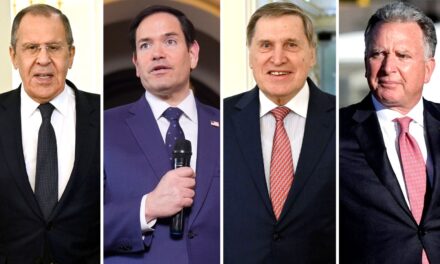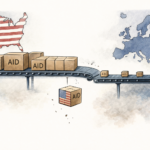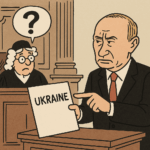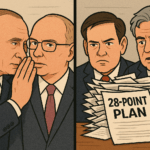The Kyiv Post opinion argues that Donald Trump’s latest intervention on Ukraine pushes President Volodymyr Zelensky toward negotiations set on Vladimir Putin’s terms, not the Euro-Atlantic consensus. The piece says four European leaders—representing the UK, Germany, France, and Poland—had just visited Kyiv and drew a clear line: no talks without a ceasefire, and sanctions should follow if Moscow refuses. Putin immediately flipped the script, insisting on “talks first,” and Trump echoed that demand, urging Zelensky to meet Putin in Istanbul on May 15. The author contends this places Kyiv in a manufactured dilemma: accept a process that rewards coercion or be framed as the obstacle to “peace.” In practical terms, the op-ed expects Zelensky to carry defined red lines into any encounter and to be ready to walk away if core sovereignty is put at risk. It underscores that Ukraine will not accept territorial concessions and would continue fighting even if U.S. backing wavers. The article also highlights Turkey’s likely role as an active mediator, while portraying Trump as persistently reluctant to confront or sanction Putin—behavior the author views as a pattern rather than a one-off tactical choice. The broader implication is that legitimizing talks without a ceasefire normalizes Russia’s use of force and weakens the leverage of sanctions, turning diplomacy into a venue for pressure rather than compromise. In this reading, Europe’s stance seeks to restore a rules-first framework (stop the violence, then negotiate), whereas Trump’s move risks recasting the conflict as a negotiation about the fruits of aggression—an approach the op-ed warns Ukraine cannot accept without ironclad security guarantees that preserve its sovereignty.
Trump Presses Kyiv Toward Talks on Putin’s Terms, Europe Balks












